Regina King Is Learning to Live with Loss
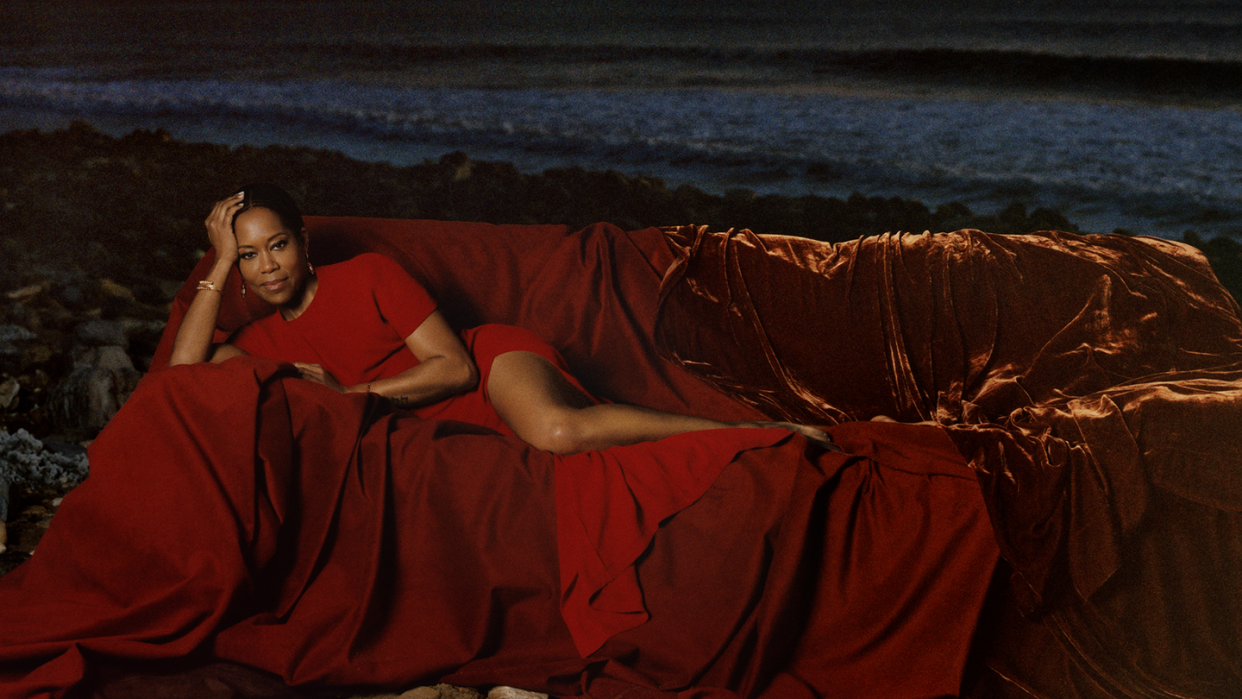
- Oops!Something went wrong.Please try again later.
- Oops!Something went wrong.Please try again later.
"Hearst Magazines and Yahoo may earn commission or revenue on some items through these links."
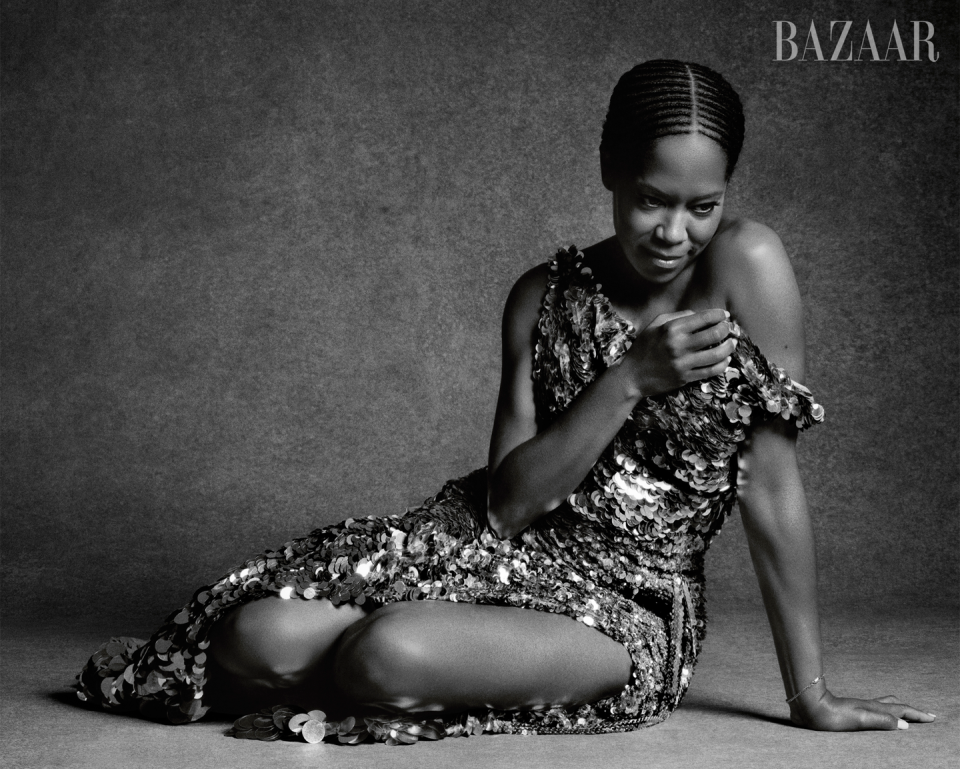
There is a mesmerizing scene in the new movie Shirley that only Regina King could pull off. The film, directed by Oscar-winning screenwriter John Ridley, tells the story of Shirley Chisholm, who, in 1968, became the first Black woman elected to Congress—and four years later, launched a historic bid for the Democratic Party nomination for president.
Chisholm’s run for that nomination, which made her both the first Black candidate and the first woman to do so, occupies an important, if prescient, place in the history of American politics, coming four decades before Barack Obama would be elected the nation’s first Black president and five decades before Hillary Clinton’s nomination. Chisholm has been canonized as an unrelenting champion of the people—one who galvanized women, communities of color, and younger voters against a predominantly white, male political establishment that had too often and for too long ignored them.
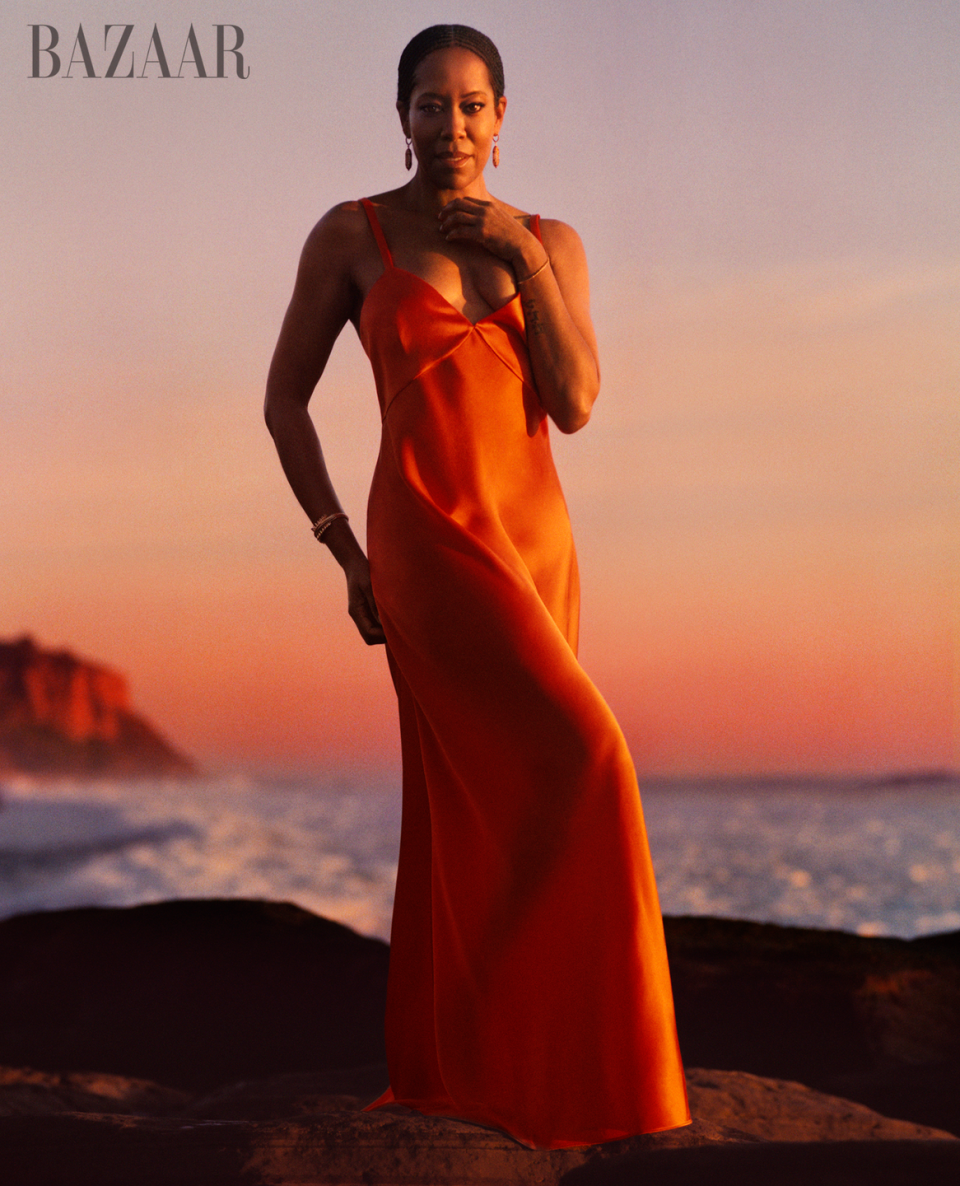
But she was also a shrewd strategist who embodied her campaign slogan, “Unbought and Unbossed” (which was also the title of her 1970 memoir). During her time in Congress, she drafted dozens of pieces of legislation to end the war in Vietnam and help achieve racial, gender, and economic equality.
In addition to the racism and misogyny Chisholm experienced on the campaign trail, she also faced multiple threats to her safety, including an incident where a man with a 10-inch knife tried to stab her in the back. Chisholm was always reluctant to speak publicly about the attack, but Shirley imagines her in its immediate aftermath.
In a bouffant wig, King, as Chisholm, stands alone in a hotel bathroom, her reflection visible in a mirror as she struggles to compose herself. She removes her glasses and wets a washcloth, which she wrings out with her hands before gently bringing it to her face, all while trying to stave off flashbacks of the assault. Afterward, she sits at the edge of a bed, waiting for her husband, who also serves as her bodyguard, to return.
In that single sequence, King strips away the sound bites and symbolism to show us a side of Chisholm we never got to see in real life as she wrestled with the extraordinary demands placed on her—physically, emotionally, psychologically—as a Black woman who was far too often the first.
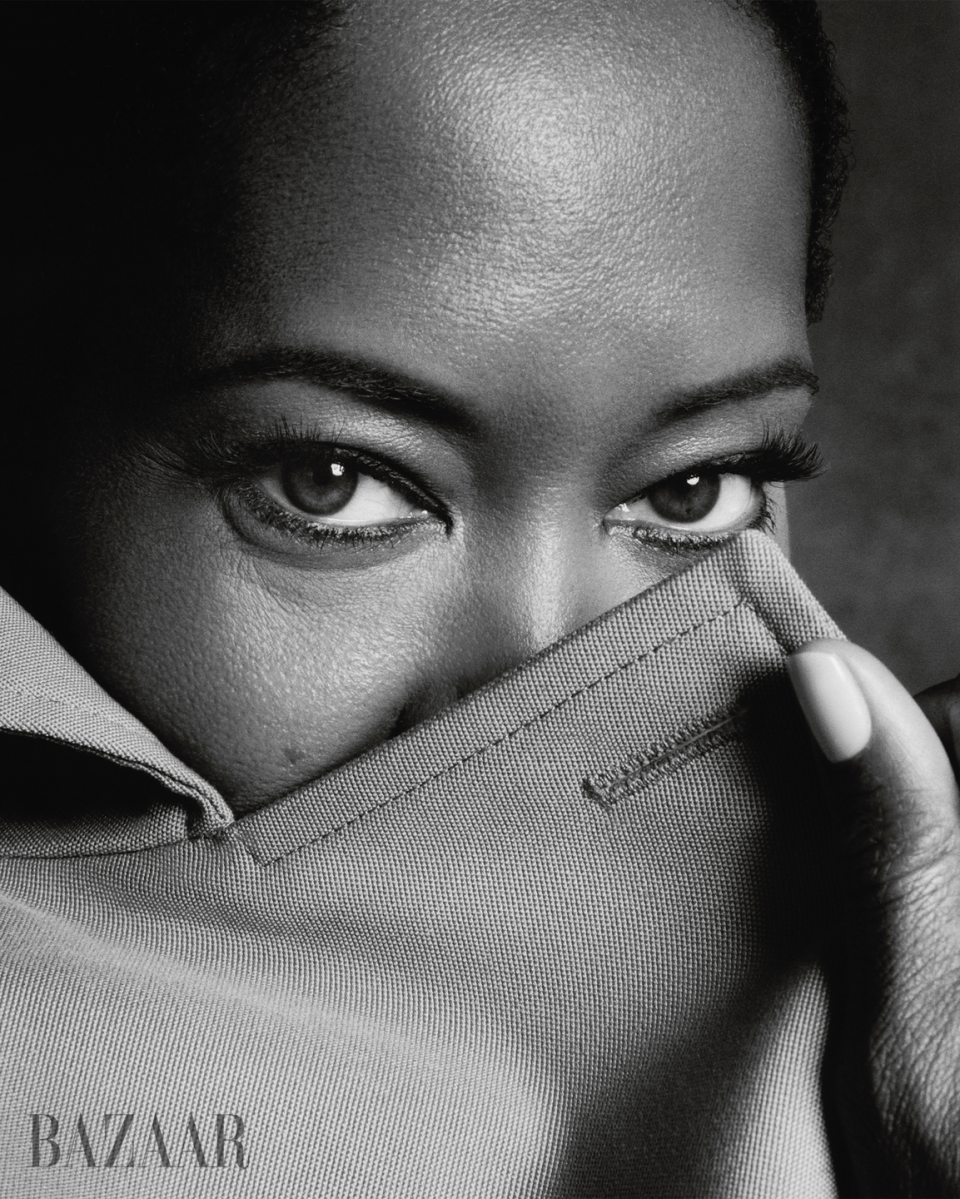
King’s portrayal of Chisholm is the type of powerfully nuanced performance for which she has been routinely celebrated over the past decade, winning four Emmys and an Academy Award during that span. But it’s also a performance that King delivered at a profoundly devastating time in her own life.
A month into filming Shirley in Cincinnati, on January 21, 2022, King revealed the shattering news that her son, Ian Alexander Jr., had passed away in Los Angeles. Ian, a DJ and musician who performed under the name Desduné, was King’s only child from her marriage to her ex-husband, record producer Ian Alexander Sr. (The couple split in 2007.) He died by suicide. He’d just turned 26.
On a Sunday afternoon in mid-January, King and I sit quietly at a restaurant in a hotel in L.A. off Sunset Boulevard. A cream beanie covers her long mini box braids, which fall softly over her white, beige, and pink camo hoodie. She is wearing no makeup, which reveals the beautiful intricacies of her face, smooth and angular, with hazel eyes that light up with curiosity and settle down with care. The weekend we’re speaking marks the second anniversary of Ian’s death; the previous Friday, January 19, would have been his 28th birthday.
Since losing her son, King has, for the most part, remained out of the spotlight. Our meeting is an early step in her reengagement with her more public life as an actor and director, one she has occupied since she landed her first role at the age of 14, in 1985, as brassy adolescent Brenda Jenkins on the sitcom 227. “As I looked at it on my calendar, I was like, ‘Well, when is it going to happen?’ ” King tells me. “But we’re here,” she says, measuring her words slowly, “making it through.”
Ian was born when King was 25, and for years motherhood has been a driving force in many of her career choices. Practically, this has sometimes meant pursuing TV work instead of movies because the schedules are more predictable and don’t require as much travel.
It also led King to take on projects that might resonate with Ian and his identity. In 2019, while promoting Barry Jenkins’s If Beale Street Could Talk, the plot of which hinged on a young Black man who is accused of a crime he didn’t commit, she recalled how Ian told her after a screening of the film that it was the first time he’d ever watched a movie and felt seen. King would win an Oscar for Best Supporting Actress for her portrayal of a fiercely loving and loyal mother in the film.
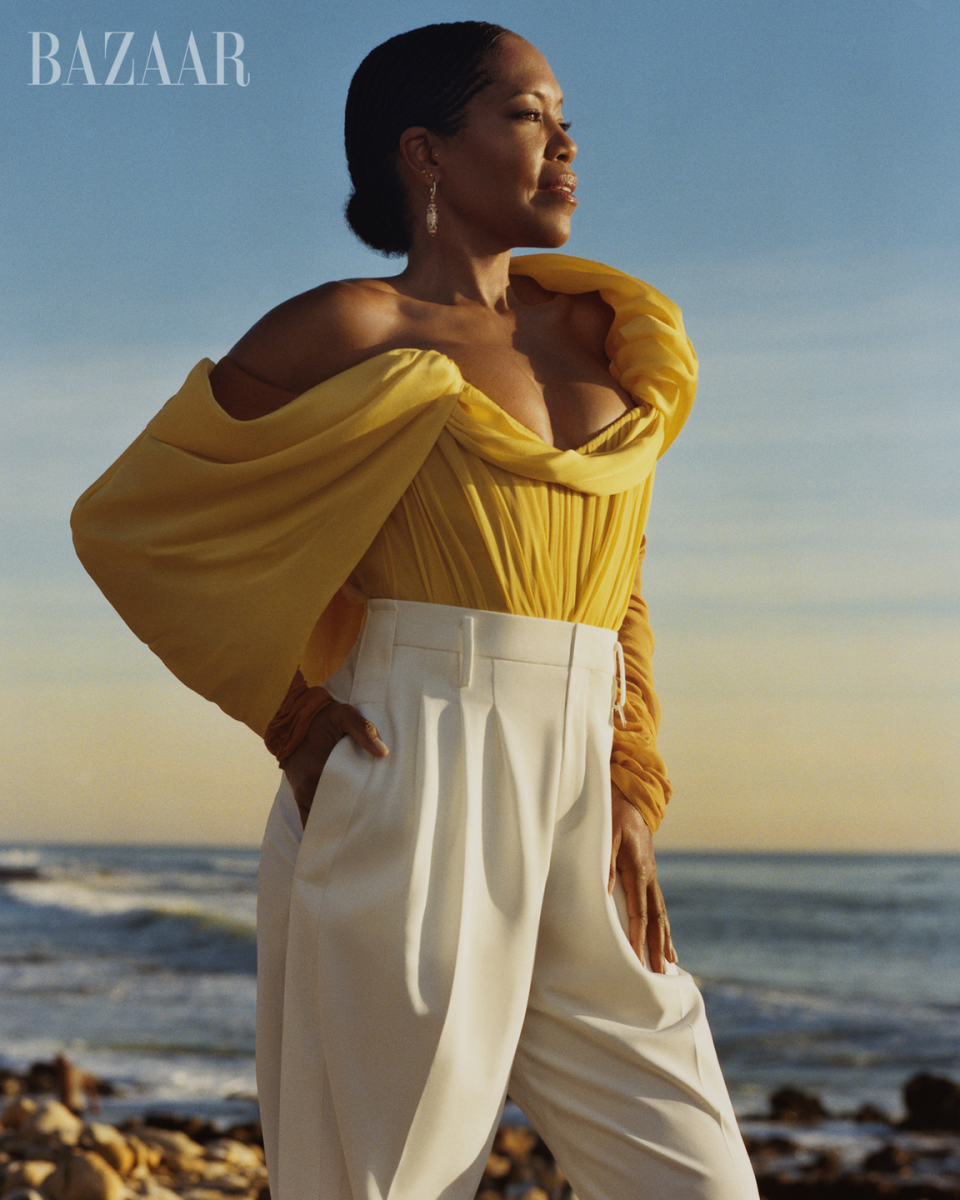
When I spoke with King in early 2021 about her feature directorial debut, One Night in Miami…, a fictionalized account of an actual meeting in 1964 between world heavyweight-champion boxer Muhammad Ali, football star Jim Brown, Civil Rights leader Malcolm X, and soul singer Sam Cooke, she told me that Ian had been a major impetus for her to want to make a film that explored Black male vulnerability through the eyes of four larger-than-life icons.
In almost every interview of King’s that I’ve read or listened to, she has spoken about the tightness of their bond—about how she and Ian, in some ways, grew up together.
“I feel like I am in a place now where my faith has really been challenged,” King says. “I don’t know that I should say this, because I feel like it’s where I used to be, but that idea that what you put into it is what you get back—it’s been proven to me that that’s not necessarily true.”
She pauses and exhales.
“When I look at all of the work and everything that we and Ian put into trying to move through the depression … I mean, he’s pure joy and pure light,” she says, slipping for a moment into the present tense. “But he was struggling so much. We knew. We knew what we were going through, but he never presented that way. That’s why I know that a smile doesn’t always mean happy. He would never not let whoever he was with feel like they were the most special person in the world. So for me, I’m like, ‘Man, he was putting a lot into things, a lot into people, a lot into this world, and yet it wasn’t translating back,’ ” she says.
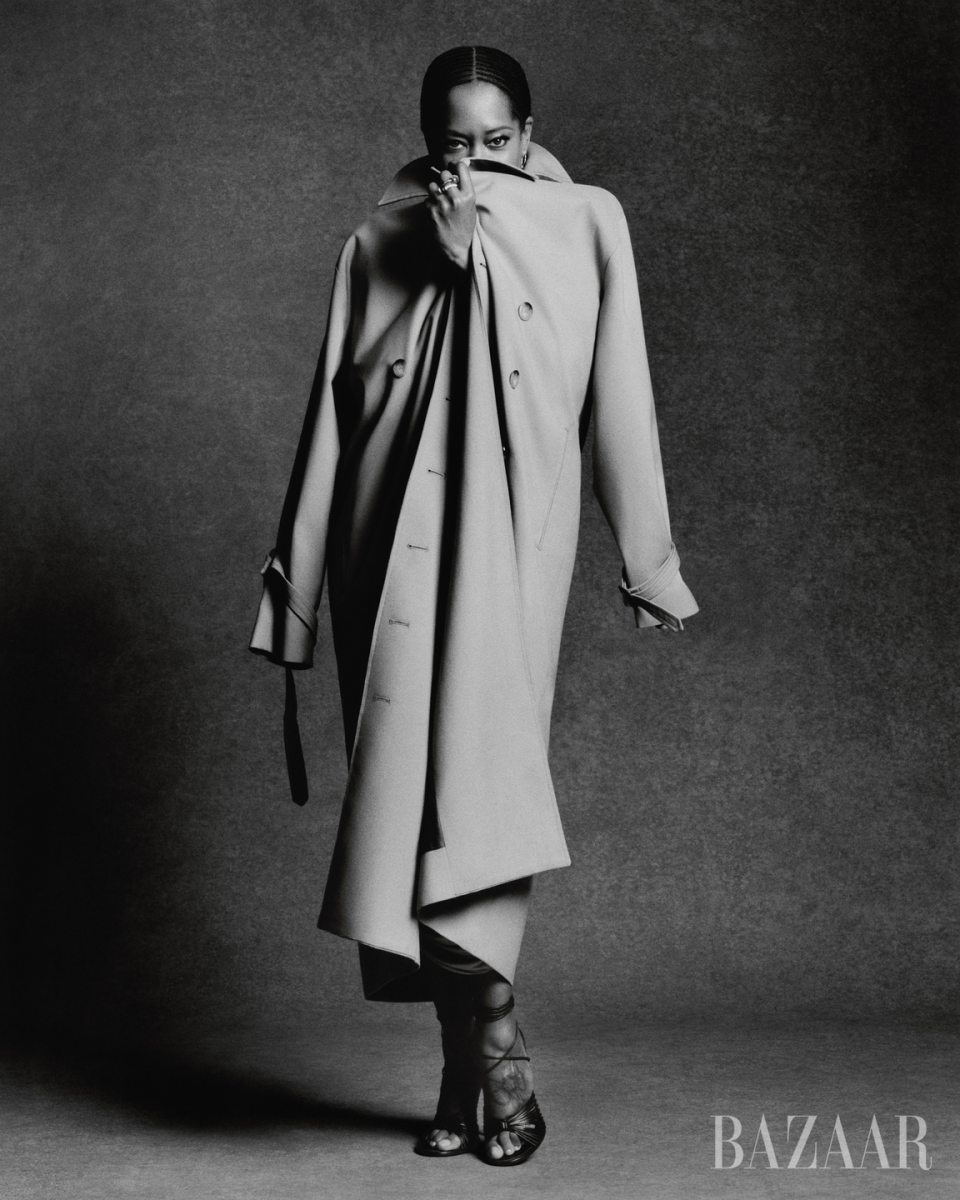
“If I was told, ‘Do you want to do this again, but it’s going to be exactly the same?’ I would say yeah, just because of how much Ian gives me,” King continues. “But right now, it is me trying to better understand this new relationship with Ian that the universe has chosen. We always talk about spirit: They’re always with us in spirit. But his physical absence is so loud that it’s hard to sometimes tap into that spiritual connection.”
King is candid about the fact that she’s still processing Ian’s death—and that that itself might be a process that doesn’t have an end. “One of the things I’ve learned on this journey is that gratitude and sadness are not mutually exclusive; they’re always working at the same time,” King says. “I just have to navigate this. Sometimes it’s minute by minute. I’m aware when I talk to other mothers—and I hate that we share this because I feel like I don’t want anyone to share this, but because we do share it, they have just taught me so much. Having those women in my life reminding me of the importance of not isolating—because it’s really easy to isolate, especially when the majority of people in the world have no idea whatsoever of this level of grief. But talking to women who are like, ‘It’s not going to go away.’ At least I know that. … One thing that I feel like every mother that I talk to feels like is that no one could have prepared me for this. No one told me this part. There’s something about them, 11 years, 12 years later—the grief is still there. So at least I know. I do know that. And I think even without them telling me that, I feel that inside. I think they just confirmed that for me. I read somewhere that grief is love with no place to go, and I was like, ‘Huh … yeah … that does sum it up in some way.’ ”
King doesn’t remember everything that happened when they all reconvened a few months after Ian’s death to finish shooting Shirley. That period, she says, is like a blur. But she does remember some moments vividly. She knew she had to finish the movie and is grateful to Ridley, the crew, the cast, which included Terrence Howard, André Holland, Christina Jackson, Lucas Hedges, and the late Lance Reddick, and her younger sister, Reina King, who served as a coproducer on the film, for the way they lifted her up and made it their mission to complete the movie too.
“I know Ian would have felt like if I didn’t finish something because of a choice that he needed to make, then I wasn’t honoring him,” King says. “We all landed at the finish line on Ian’s wings. He guided us there.”
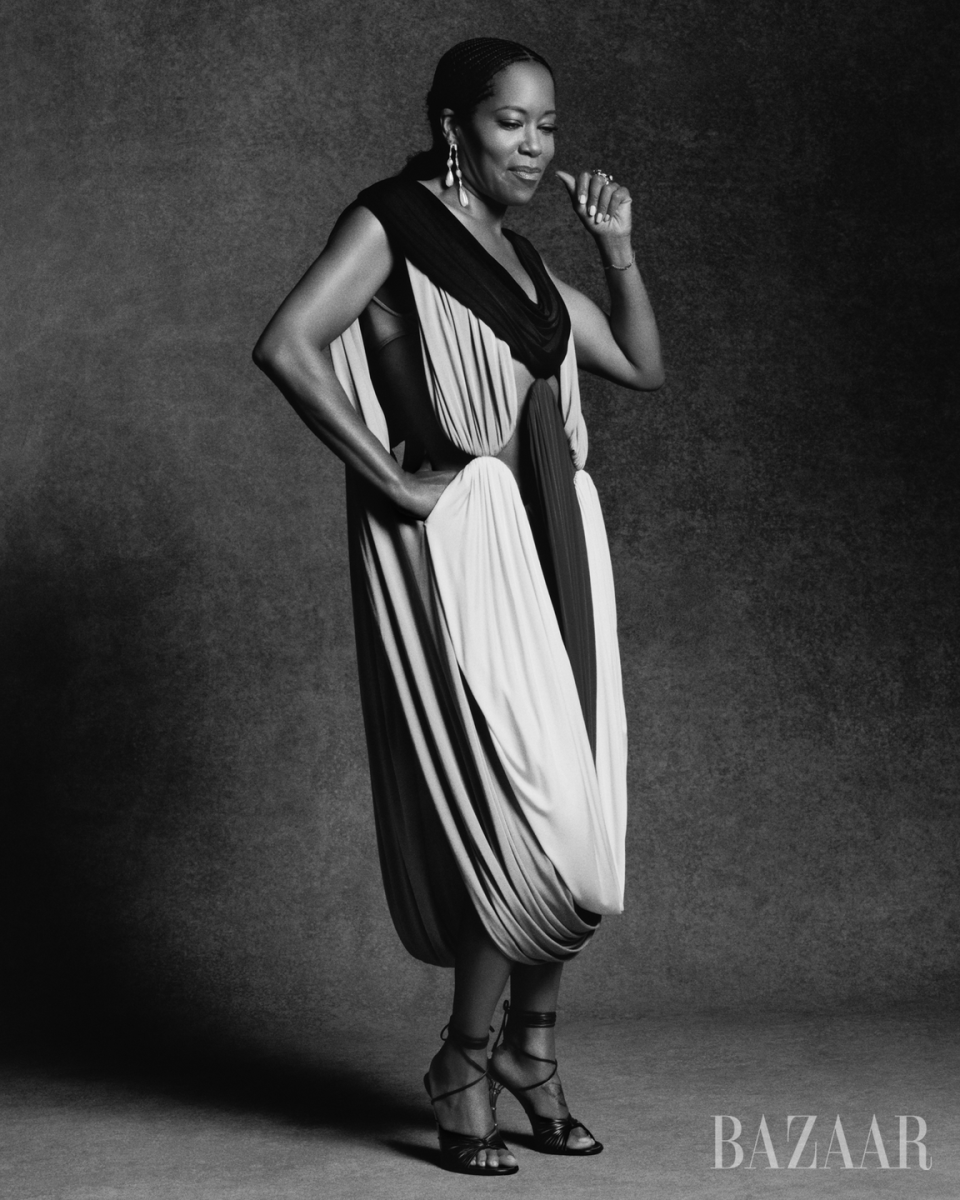
I like to think that King’s perseverance comes as much from being a child actor as it does from being a teen athlete. To anyone who has seen her kickbox in 2005’s Miss Congeniality 2: Armed and Fabulous or battle Zazie Beetz in the 2021 western The Harder They Fall, her kinesthetic intelligence and physicality are much more than apparent.
King, who was born and raised in L.A., enrolled in her first acting class as a child with Betty Bridges, an actor and the mother of Diff’rent Strokesstar Todd Bridges. She also ran track in high school, an extracurricular activity she maintained even after she started acting professionally. As a former high school sprinter myself, I can’t help but suspect that those dual experiences may have instilled in her an endurance and an uncanny ability to throw herself fully into every stride while rigorously pacing herself for the road ahead and whatever comes next.
It was the late director John Singleton who cast King in her first movie, as a cheeky around-the-way girl in 1991’s Boyz n the Hood,and later as Janet Jackson’s saucy sidekick, Iesha, in 1993’s Poetic Justice. But fearing she’d be typecast, King pursued roles that allowed her to stretch and subvert expectations. She auditioned for—and got—the part of Marcee Tidwell, the ride-or-die wife of Cuba Gooding Jr.’s football star Rod Tidwell, in Cameron Crowe’s 1996 film, Jerry Maguire,and went on to appear in How Stella Got Her Groove Back (1998), Enemy of the State(1998), Legally Blonde 2: Red, White & Blonde (2003), and Ray (2004). King then returned to TV, embarking on a tour-de-force run of peak-era work on shows like 24, Southland, The Leftovers, American Crime, Seven Seconds,and Watchmen.
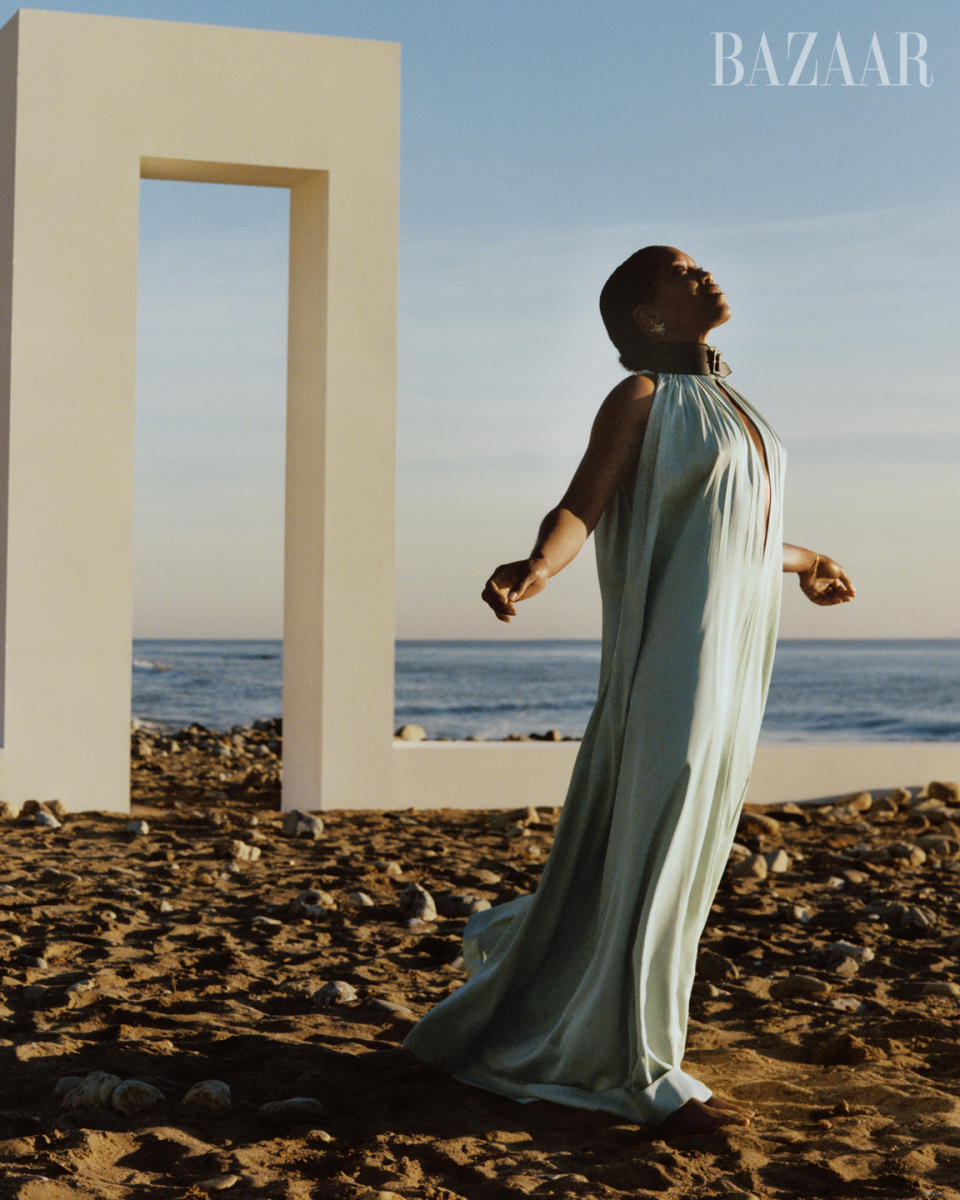
It was around this time that King also started directing. After helming an episode of Southland in 2013, she enrolled in an ABC network training program and shadowed showrunners and directors in the Shonda Rhimes universe. She would go on to direct episodes of Scandal, The Catch, and This Is Us.
King’s success and longevity are still atypical in an industry that notoriously burns out child actors. “I would say that I didn’t not expect it in my career,” King offers, “and I wouldn’t say that I expected it.”
King says that she has always tried to seek out characters she connects with, regardless of the genre, enabling her to play a wide variety of roles and work with an eclectic range of filmmakers. “I feel like whether it’s a comedy or a drama, people should feel like there’s something in there that’s relatable,” she says. “The Godfather is one of my favorite films of all time. Do I know anything about killers and murders and the Italian Mafia? No. But do I know family? Do I know about going to any length to protect your family or what you feel is rightfully yours? I truly understand that. So I can go on the ride.”
Shirley Chisholm’s story is one that King has wanted to tell for more than a decade. She and Reina coproduced Shirley for Netflix under the banner of their production shingle, Royal Ties. But their fascination with Chisholm began much earlier, after their mother, Gloria Darby, a special-education teacher, told them about her when they were kids. As they explored different projects they might want to develop, they returned to Chisholm.
“We’d both had too many experiences where friends had never heard of Shirley Chisholm,” King tells me. “We all know women who roll up their sleeves and are able to go toe-to-toe with men—Black women,” she says. “We know they exist, but we don’t get to see them out in the storytelling space,” she explains. “Shirley understood the game of politics, even though people’s lives were not a game to her.”
“She is just epic, a Goliath in so many regards,” says Reina, who also appears in Shirley as Chisholm’s estranged sister, Muriel St. Hill. “But Regina, to me, is a Goliath in her own right.”
In person, King exudes generosity, gentleness, and groundedness—a rare trifecta in Hollywood, for sure, but also traits that others have come to value in her as a collaborator.
“Regina chooses her roles very wisely, excavating the humanity of each character,” says Angela Bassett, who first met King when Bassett guest-starred on a 1989 episode of 227 and later appeared with her in both Boyz n the Hoodand How Stella Got Her Groove Back. “She brings her whole heart and being to her projects, and it’s that spirit that permeates on set.”
For King’s The Leftovers costar Carrie Coon, it’s the way she both commits and reacts that makes her so compelling to work with. “There are actors who are very good, and know exactly what to do on camera, but it doesn’t feel like anything you’re doing will change them,” she says. “That is not the case with Regina. She has a radical presence, and that gives you as an actor your own freedom.”

King had another memorable mirror scene in If Beale Street Could Talk. In the film, which was based on the 1974 James Baldwin novel of the same name, her character, Sharon Rivers, a middle-age, working-class Black woman from Harlem, travels to Puerto Rico to try to convince the woman who has wrongly accused her pregnant daughter’s partner of rape to recant her testimony.
As Sharon prepares for that difficult meeting, we see her alone in a black slip and a transparent cap, staring directly at her reflection in a mirror. She puts on a wig to arm herself, only to remove it and loosen her hair. In that short scene, King manages to convey fear, hope, desperation, and incredulity. She carries Sharon’s very heavy load and responsibility in her eyes, forcing us to confront America’s twin histories of racial injustice and sexual violence head-on.
The film’s director, Barry Jenkins, says that the complexity King unearths as an actor is what made her performance so ineffable. “There is this quality in her that people are often casting for, which is this person who’s going to go out and advocate on behalf of others, who’s going to use her person, her actions, to try to protect others. And there’s a weight that comes with that. There’s a burden that we don’t often get to see,” he says. “Because I imagine in some version of the world with Regina playing all these characters, there’s been a burden on her as well.”
It’s a sentiment echoed by writer-producer Damon Lindelof, who worked with King on both The Leftovers and Watchmen. “There is a fundamental kind of vulnerability at her core,” Lindelof says.“She tends to choose parts where there’s a lot of suffering going on, and that’s the human experience where I think we need the most hand-holding.”
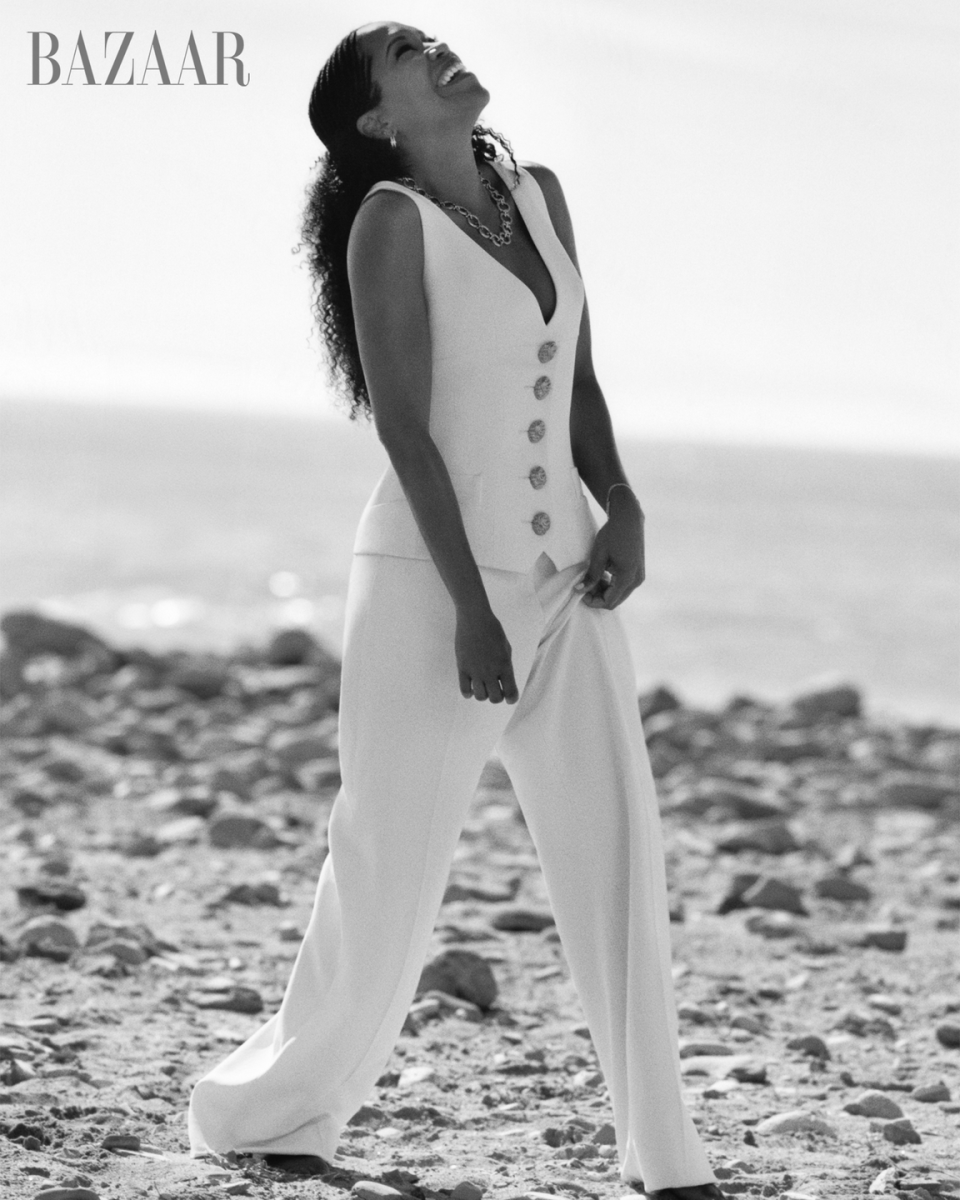
Growing up, I learned early on that I was expected to be a “strong Black woman”—a self-sacrificing figure who is supposed to be a stalwart in the community and the country. She is rarely rewarded for overperforming and seldom relieved of her overcommitments. Rather, society often assumes that these Black women will take on more responsibility, often to the detriment of their health, wealth, and well-being.
King, though, has repeatedly worked to deconstruct this archetype, exploring the Black women she inhabits as multifaceted, contradictory, and singular. So many of her most memorable roles have been women who fight fearlessly for others and demand to be heard—Shirley Chisholm among them. They’re always powerful but never stereotypical.
I ask King whether these traits are things she actively looks for in a role or if she just brings them to a character. “Honestly, I haven’t thought about it that way,” she says. “What I do know is that I do gravitate toward stories that are just interesting to me as an audience. … I’m always thinking, ‘Can I believe her, the character? Is she real to me? Can I root that character in truth?’ ”
It’s that search for something real, even if it’s messy or inconvenient, that Shirley director Ridley, who worked with King on three seasons of American Crime,believes is one of her most profound gifts. “I think that’s what the audience feels,” he says. “If somebody’s going out and fighting that fight because they have to, maybe there’s a victory, maybe there isn’t, but the win is in the doing. And the win is sometimes getting up tomorrow and doing it again.”
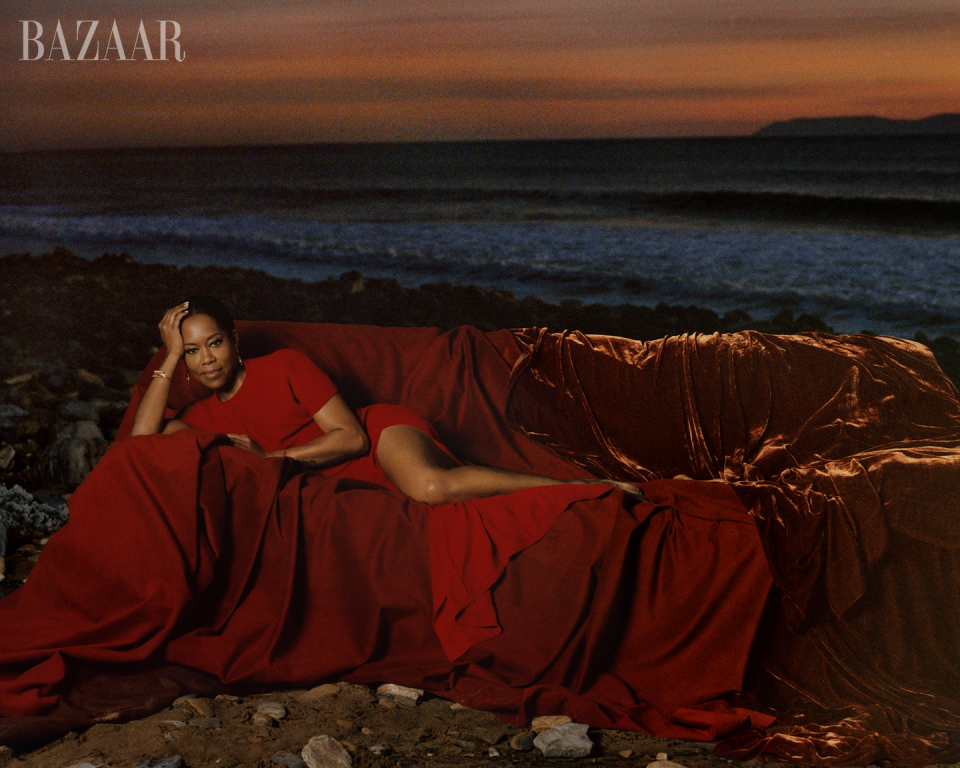
King hasn’t acted in anything since finishing Shirley and isn’t sure right now when she will again. She has been working on developing a couple of projects that were close to Ian’s heart, but beyond that, the field is, for the most part, wide open.
There is, though, A Man in Full, an upcoming six-part Netflix series King coexecutive-produced with prestige-TV maestro David E. Kelley. Based on a 1998 novel by Tom Wolfe, it stars Jeff Daniels as a real estate mogul clinging to his wealth and power. King also directed the first three episodes of the series, venturing back behind the camera, where she could spend more time in the future.
“Given how much experience she has had and the people she’s met, she has a very large family of people that she’s built around her,” says Lucy Liu, who acted with King in Southland and was directed by her in A Man in Full.“It’s a community, and I think that speaks volumes. She is beloved.”
King’s drive to mine the essence of every scene is something Kelley noticed as well. “She sighs a lot,” he says. “At first, I interpreted those sighs as ‘Man, she’s not as enthusiastic maybe. That’s a deep sigh.’ Then I realized, no, she’s taking a big breath before she goes down underwater, where all the good stuff is.”
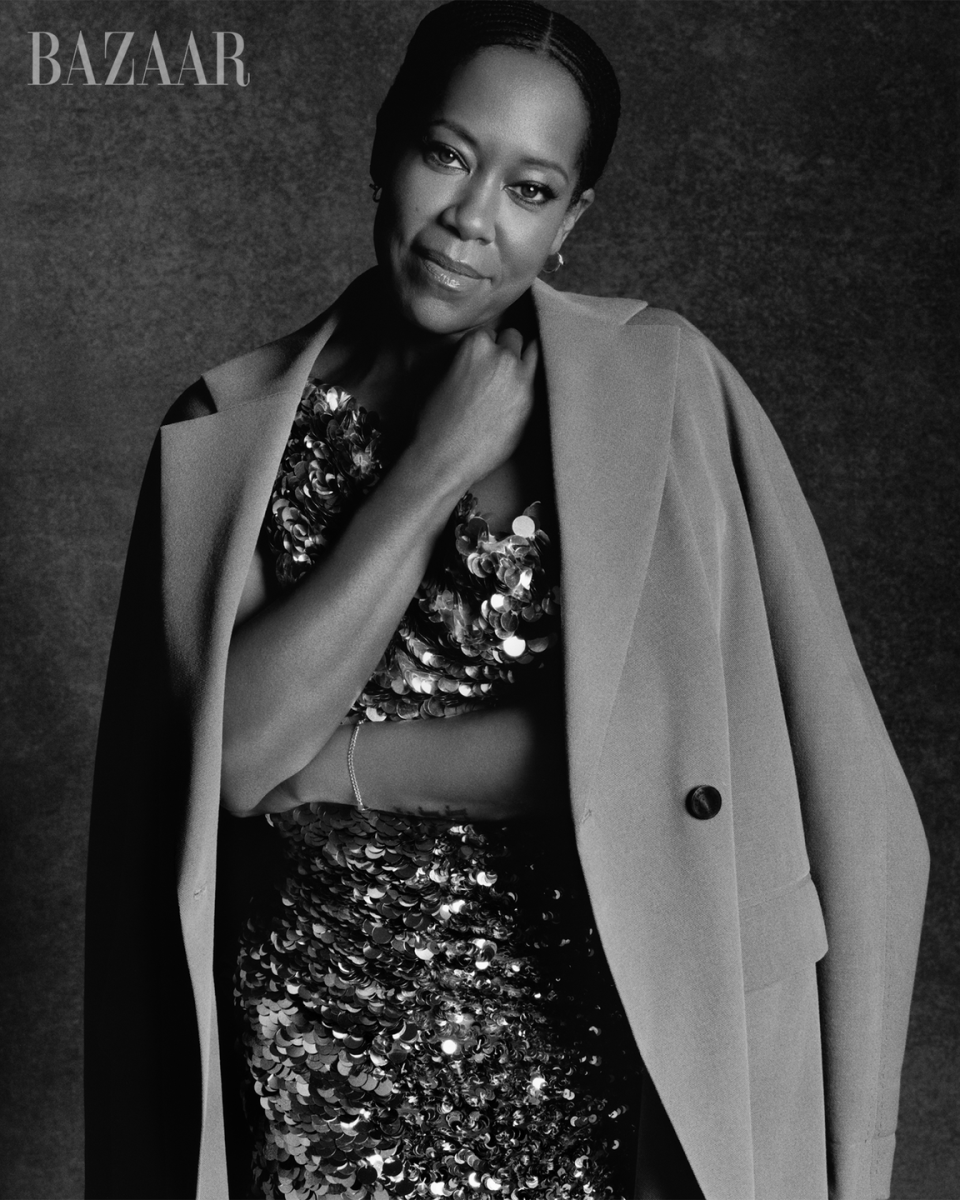
In addition to A Man in Full, King also recently signed on to coexecutive-produce and direct the first episode of Mara Brock Akil’s new reimagination of Judy Blume’s 1975 book, Forever….
Leslie Odom Jr., who earned an Oscar nomination for Best Supporting Actor in 2021 for his performance as Sam Cooke in One Night in Miami…, is excited to see her do more. “Most of the directors I’ve come across, if there is a fire that has started on the floor, they’re wise enough to stay out of the way; they capture it,” he says. “Regina can help you start a fire. She’s kindling. She’s a spark.”
One of the few public appearances King has made since Ian’s death came this past January at the Governors Awards in L.A., where she presented her longtime friend Bassett—who many believe should have won an Academy Award for her portrayal of Tina Turner in 1993’s What’s Love Got to Do With It—with an honorary Oscar. When King was asked to do it, the thought filled her with fear. But as she watched Bassett onstage accepting the award, King had a flash of insight. “I was thinking, ‘That’s what I want to do,’ ” she says. “ ‘I want to find the next role for Angela.’ ”
King admits that she’s been searching for her sense of purpose since Ian died. But then occasionally something will happen to remind her that it’s still very much there.
“Usually, with mothers, our kids are teaching us about ourselves, our abilities, things that we never thought we could do, things we never would’ve wanted to do that we do,” King says. “Ian taught me—and is still teaching me—so much.” HB
If you or someone you know is considering suicide, contact the 988 Suicide & Crisis Lifeline by calling or texting 988, or go to 988lifeline.org.

This article appeared in the April 2024 issue of Harper's Bazaar
Hair: Araxi Lindsey for Araxi Botanicals; makeup: Latrice Johnson for Black Radiance Beauty; manicure: Jessica Lee; production: Connect the Dots; set design: Spencer Vrooman
You Might Also Like
